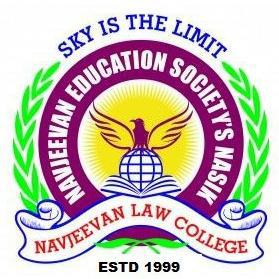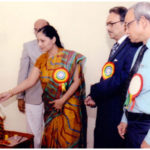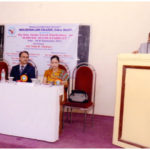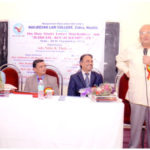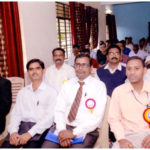Activity Info
One Day State Level Workshop, Sponsored by University of Pune was organized on – “Judicial Accountability” on 28th Sep. 2013
Theme of The Workshop:
The Judicial Standards and Accountability Bill, 2010 requires judges to declare their assets, lays down judicial standards, and establishes processes for removal of judges of the Supreme Court and High Courts.Judges will be required to declare their assets and liabilities, and also that of their spouse and children. The Bill establishes the National Judicial Oversight Committee, the Complaints Scrutiny Panel and an investigation committee. Any person can make a complaint against a judge to the Oversight Committee on grounds of ‘misbehaviour’. A motion for removal of a judge on grounds of misbehaviour can also be moved in Parliament. Such a motion will be referred for further inquiry to the Oversight Committee. Complaints and inquiries against judges will be confidential and frivolous complaints will be penalised. The Oversight Committee may issue advisories or warnings to judges, and also recommend their removal to the President.
The key issue is whether the balance between independence and accountability is maintained by the proposed mechanism in the Bill. The Oversight Committee has non-judicial members which might impinge on the independence of the judiciary. The Bill penalises anyone who breaches the confidentiality of complaints. It is questionable whether a penalty is needed for a frivolous complaint that remains confidential. The Scrutiny Panel has judges from the same High Court. This is different from the in-house procedure of the Supreme Court. The Oversight Committee has non-judicial members. The procedure of the Committee is not an in-house procedure of the judiciary. It is not clear whether the power of the Oversight Committee to impose minor measures is constitutionally valid. The Bill does not mention whether a judge has the right to appeal to the Supreme Court against an order of removal issued by the President after Parliament finds him guilty of ‘misbehaviour’.
Objectives
1) To Discuss the Provisions of Judicial Accountability Bill 2010
2) To Discuss the Necessity of High Judicial standards & Transparency
3) To Increase the Public confidence of Judiciary
Resource Persons
| Sr. No. | Speaker | Topic |
| 1 | Dr. S.V.M Kamasai | The Necessity of high Judicial Standards and Transparency in present Scenario |
| 2 | Dr. Atul More | The pros and cons of Judicial Accountability Bill 2010 |
| 3 | Adv. Sudhir S. Kotwal | Independence of Judiciary |
To grace the function, Hon. Nitin B Thakre (President Nashik Bar Association) was the Chief Guest. Hon. Daulatrao Ghumre (Senior Adv. Nashik District Court) ,Subhash Deshmukh (Bade Sir), Managing Trustee N.E.S., Adv. K. K. Ghuge, LMC Member, were present as Guest of Honour.
